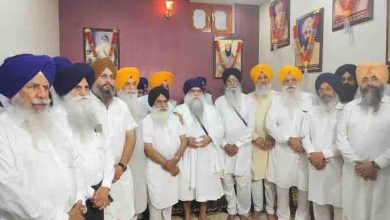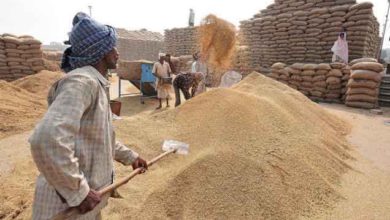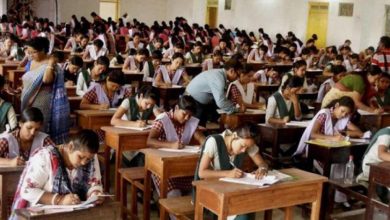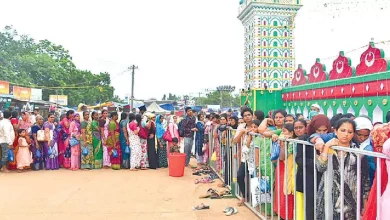Odisha govt comes up with action plan for management of flood and water logging in urban areas

Bhubaneswar: Odisha government has come up with action plan for management of possible flood and water logging in urban areas during Monsoon-2025.
The State government issued the action plan as the probabilistic forecasts for the southwest monsoon season (June to September) of 2025 indicates that most parts of the State of Odisha may experience above-normal rainfall and the urban areas/pockets may experience waterlogging and flood-like situations due to heavy-rain, flood situations.
In light of the potential risks arising from excessive rainfall, floods, and cyclones, it is imperative to undertake following preventive and preparatory measures on an urgent basis, said Director Municipal Administration (i/c) Debasis Singh to the Municipal Commissioners of all Municipal Corporations and the Executive Officers of all Municipalities / N.A.Cs
Have a look at the action plan for management of flood and water logging:
1) Inspection of Drains, Manholes & Drainage Clearance:
ULBs shall inspect all drainage channels under their jurisdiction and ensure timely desilting and necessary clearance of choked or clogged sections to maintain proper flow and prevent waterlogging.
Ensure 100% verification of all drains and manholes (both open and covered) within the ULB jurisdiction.
For closed drains and manholes, check for any damage or vulnerability in the covers that could pose safety risks.
Undertake immediate repair and covering of damaged or open manholes and drains.
Where repair is not immediately feasible, install appropriate warning signage to caution the public.
Ensure covering of drains with slabs and installation of safety nets at vulnerable points with adequate warning signage to prevent accidents.
Strictly monitor and prevent the piling of construction and demolition debris inside drains and along roadsides.
Remove encroachments obstructing the flow of storm water, rainwater, or wastewater in drain channels.
Initiate legal proceedings, wherever necessary, against defaulters to prevent further encroachments.
Install bar screens in secondary/tertiary drains and wire mesh at outfalls to filter solid waste. Ensure proper disposal of collected waste and map human resources to regularly clear screens, especially during heavy rainfall.
ULBs shall notify the concerned department such as the Drainage Division or Minor Irrigation Division of Water Resources Department of any choked or clogged drainage channels identified during inspection that fall outside their jurisdiction, to ensure appropriate follow-up action.
2) Repair and restoration Measures:
Take all possible measures to clear urban roads blocked due to tree falling and other reasons immediately after cyclone. Co-ordinate with Fire Services and other line Departments for logistic assistance like tree- cutters etc.
Any damaged urban roads should be restored to motorable conditions within 72 hours after cyclone/flood utilizing own funds or any permissible grants.
Supply of drinking water to affected areas must be ensured by the PHEO/WATCO in close co-ordination with ULBs. Any damage to Water Supply System be repair and restored within least possible time.
Identification of Flood-Prone/Vulnerable Points and De-Watering Arrangements:
Identify waterlogging prone and low-lying areas. Deploy pump sets in advance at strategic locations to ensure prompt de-watering during emergencies.
Identify zones for cities and designated zone level officers may be assigned to carry out emergency services during cyclone/flood situations.
Verify operational status of equipment like pump sets, DG sets, Generator & inflatable tower light and prepare a list of inventories of machines and equipment available with the ULBs and other line Departments.
Arrangement and management of shelters:
ULBs having MCS/MFS shall utilize them, during time of emergency. In addition, ULBs shall Identify public buildings like schools/colleges for use as shelters for evacuated people during cyclone/flood situations.
Inspect structural stability of all cyclone shelter and carry out necessary repairs if needed, ensure proper electrification, drinking water supply systems, approach roads and display clear and visible signage to guide people to shelters during emergencies.
Sanitation of all facilities, including clean and functional toilets be ensured.
Lady home guards/security personnel may be deployed in the shelters to take care of women, children, old and other vulnerable people. Local volunteers, WSHG members must be identified, briefed and deployed in all the shelters.
Provision of cooked food in the shelter may be made in case the evacuated persons are required to stay more than a day.
5) Control of vector-borne disease:
In the rainy season, due to flood like situation, there may be outbreak of common vector-borne diseases like malaria, dengue & Japanese encephalitis & water borne diseases like diarrhea and jaundice. Following works may be undertaken to address the issue.
Waterlogging in habitation areas should be completely avoided during the rainy season to prevent outbreaks of vector-borne diseases. Proper sanitation measures must be taken with utmost care, ensuring cooperation from all relevant departments.
Apply larvicides and bleaching powder in waterlogged areas, cover and seal septic tanks and soak pits, and ensure that water containers are properly covered to prevent mosquito breeding.
Ensure proper disposal of garbage and unused items such as plastic containers and tyres near households, which can collect stagnant water and become mosquito breeding grounds.
Conduct regular fogging activities in ULB areas as a priority measure to control mosquito populations and reduce the risk of disease outbreaks.
6) Opening of Control Room:
All ULBs are requested for opening of Control Room headed by dedicated officer in charge of Control Room. This Control Room shall be managed by officials on roster duty basis during the operation period.
The Control Room should become very active and provide all necessary assistance & coordination to public during monsoon and emergency situations.
ULBS shall maintain Control Rooms during flood/cyclone events to promptly address emergency issues, including disruptions to drinking water supply, blocked roads and clogged drainage systems on a real-time basis.
Control Rooms shall be well-equipped with landlines, computers, and printers to ensure smooth communication and documentation during the emergency period.
7) Miscellaneous:
For proper management of the urban flooding, all efforts should be taken for involvement of the elected representatives and ward committees for management of flood and water logging in the respective areas.
A coordination meeting with all relevant Departments & agencies including Fire Services may be conducted before 1st week of June 2025.
The Collectors & Commissioners are requested to ensure inter-departmental co-ordination and assistance during emergency situations.
The above instructions should be carried out on priority by all ULBs to ensure effective preparedness and response during the monsoon season. Timely action, coordination with line departments, and active community involvement are essential to minimize risks and safeguard public health and safety.





